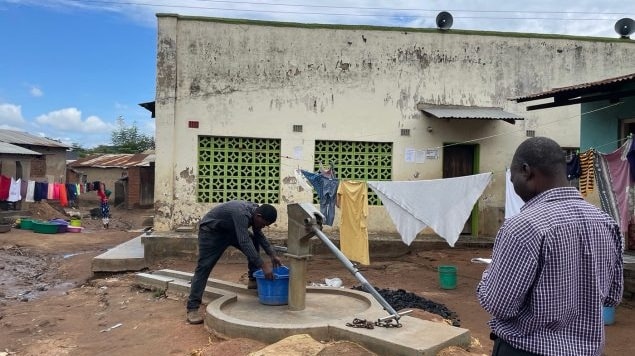What to know
Over the past few years, cholera outbreaks have intensified in several countries, including Malawi. CDC highlights efforts to monitor water quality and to increase access to clean water in Malawi. Cholera is an acute diarrheal illness caused by drinking water or eating food contaminated with cholera bacteria.

The challenge
From 2022-2023, Malawi experienced the deadliest cholera outbreak in the country's history with over 59,000 cases and 1,770 deaths. Due to heavy rain, widespread cholera, and many deaths, Malawi declared a public health emergency in December 2022.
Intervention
CDC experts deployed to Malawi to work with local and international partners. Together, they focused on reducing the risk of cholera. The team worked to ensure people had access to clean water and supported WASH response activities. By late 2022, transmission had spread from rural areas to more densely populated urban cities. This spread included two of the biggest cities in the country—Lilongwe and Blantyre.
Scaling up water quality testing efforts in Lilongwe
In Lilongwe, the city with the highest number of cases in the country, CDC supported an integrated team from the Ministry of Water, the District Environmental Health Office, and the Lilongwe Water Board. Public health officials conducted a rapid assessment of water quality in the most heavily affected areas. Using free chlorine residual testing and microbiological water quality testing, the team assessed the city's piped network and alternative water sources, with many people using multiple water sources.
The piped water network in the city, serving about 70% of the Lilongwe population, was found safe to drink. However, tests of other water sources like boreholes and shallow wells found high levels of fecal contamination. People in areas of the city that are not currently serviced by piped water or in low-income households were more likely to get cholera due to unsafe water sources.
Results
After the assessment, the response team recommended that health officials and WASH implementing partners increase access to treated water in areas with a high risk of cholera. They proposed scaling up chlorination at water sources and at households. Additionally, the team developed and disseminated messages encouraging communities to use safe water. This included promoting the use of chlorinated water for drinking, washing dishes, and cooking, either from the Lilongwe Water Board or from alternative sources treated at the point of collection or the household level.
Looking ahead
CDC continues to support UNICEF to scale up these activities in other highly affected areas of the country to ensure clean, safe water for affected communities. These activities include support for the central and regional laboratories of the Ministry of Water and Sanitation to conduct rapid assessments. It also includes training district-level water quality monitors to conduct routine chlorine testing of piped water networks across Malawi. These activities are critical to reduce transmission of cholera and to build capacity to prevent future outbreaks and prevent other waterborne diseases.
